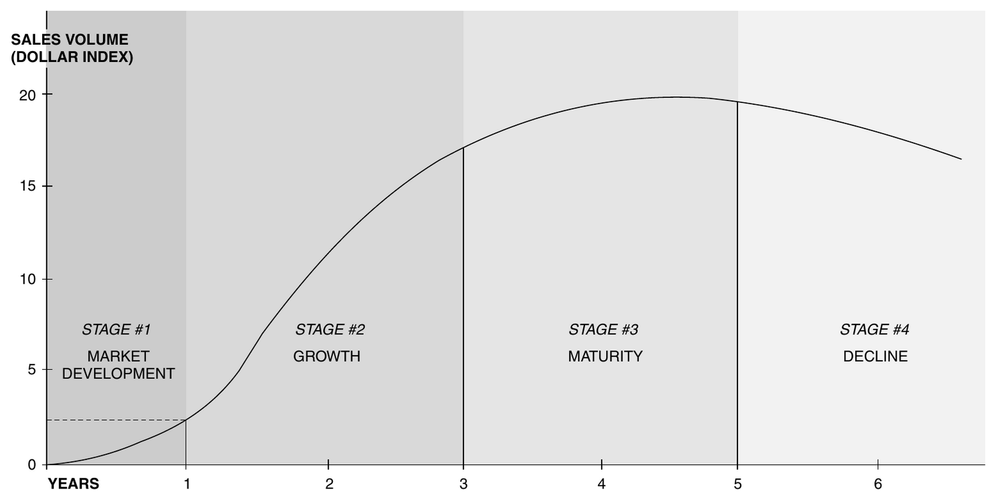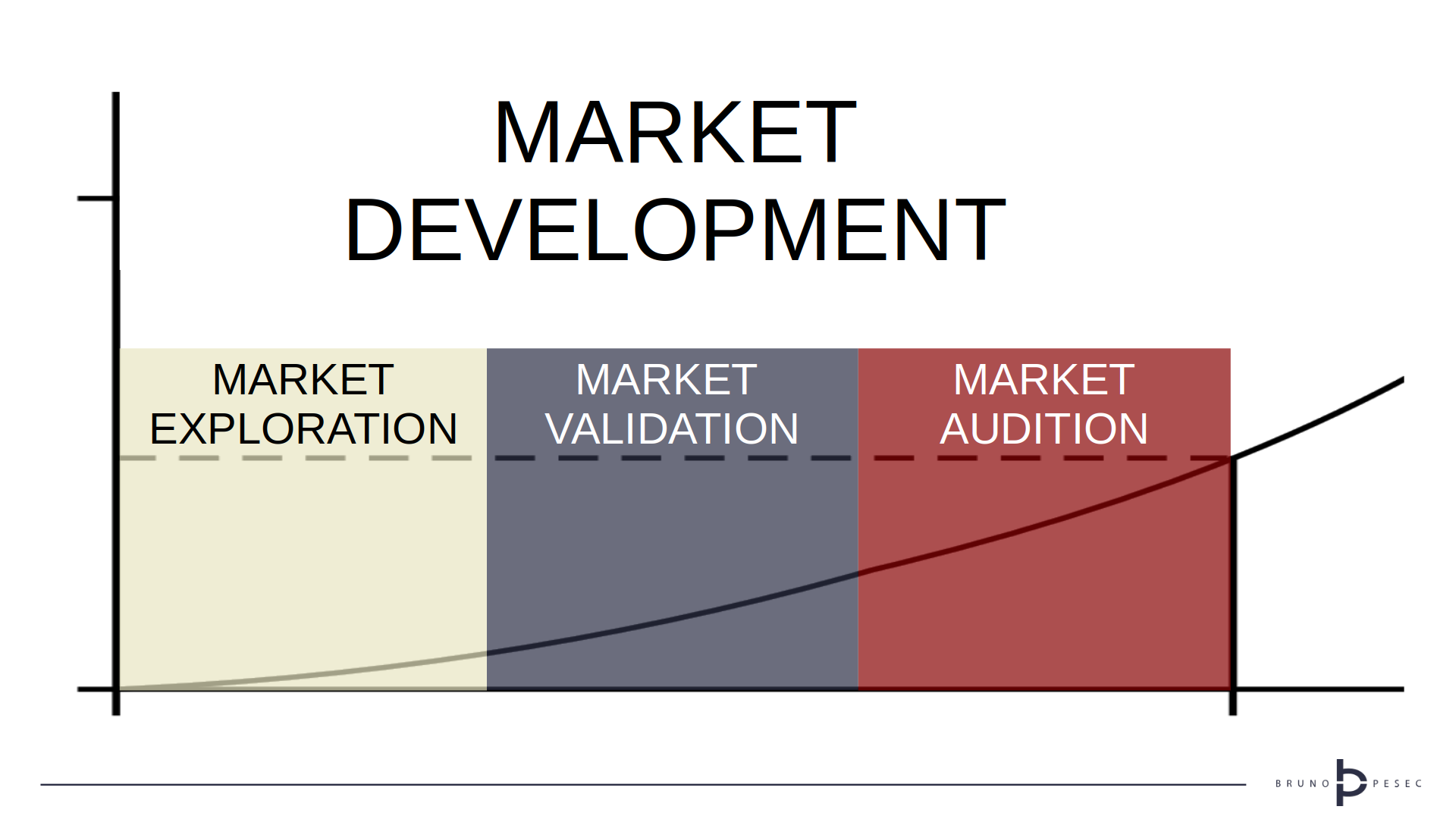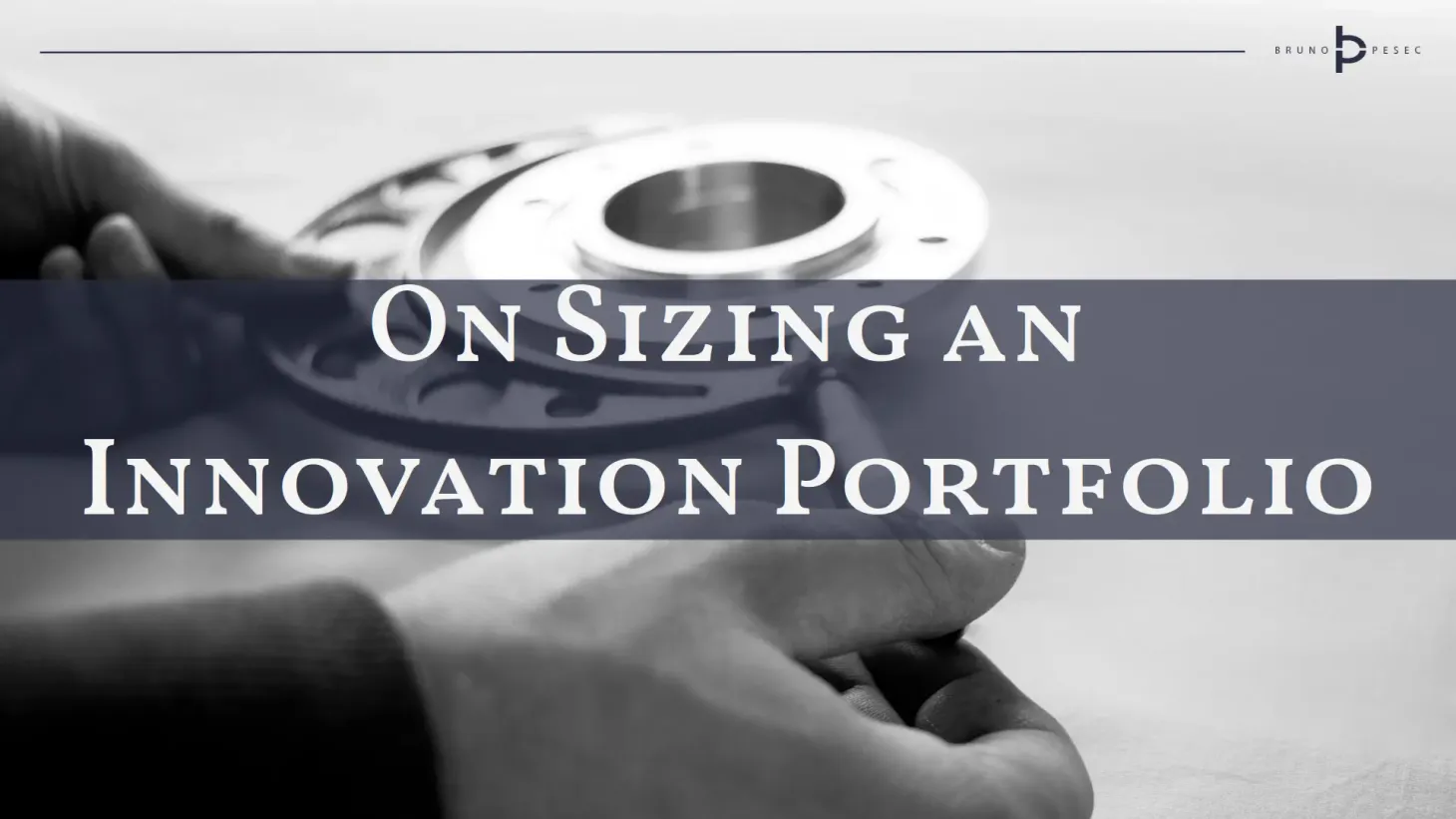How to hold innovation teams accountable?
Match expectations to the idea maturity level.

Usually when a team proposes a shiny—and innovative—new idea to work on, it means that they want to immediately start developing a product or service they imagined.
Let's put aside the fact that might not be the best course of action, and focus on the issue of accountability.
Whomever will approve this decision, and support it financially, will want to somehow measure the progress of this team to ensure they are not making a bad investment.
Since this is still an idea, sales and revenue cannot be tracked; nor anything of the kind. What then should the team and management agree on?
A key to this question is understanding the maturity level of the idea itself. With that in place accountability becomes a trivial matter.
One way to asses the idea's maturity level is by using the product life cycle:

During market development you should be measuring speed of learning; traction during market growth; and revenue and profitability during market maturity and decline.
Most ideas fail in the first stage, so it is worth taking a more granular view of it:

Key questions for these three stages are:
- Market exploration. Is there a demand for the idea at hand? Is it clear who is the idea for: user, beneficiaries, buyers? Is the segment large enough to support our ambitions?
- Market validation. Can we meet the demand and get customer to act---e.g. sign letter of intent or commit to buying? Can we reach the numbers that would make sense to us? How should the bare-bones product or service look like?
- Market audition. Can we take to the market the smallest imaginable solution that gets customer to pay? Can we pass the product-market fit test---meaning that more than 40% of customers would be disappointed if the product disappeared?
Ask the team to self-asses which stage they are in. Then ask them to provide compelling evidence* that supports their claims.
Holding teams accountable to answering above questions ensures that their time that organisation's resources aren't wasted.
In other words, team's main job is still to develop an idea they have; but now they have smaller and more specific targets to hit on their way, ensuring their idea is worth developing.
During the market development stage the key team performance metric is their speed of learning—or to be more precise—how quickly they collect evidence relevant for their idea.
*"We know they will love it" does not qualify as compelling evidence.

Corporate innovation is about mastering doing and managing innovation, and you need the right tools to do both. In this two-hour session I'll provide you exactly that. Register here.
Bruno Unfiltered
Subscribe to get the latest posts delivered right to your inbox. No spam. Only Bruno.




